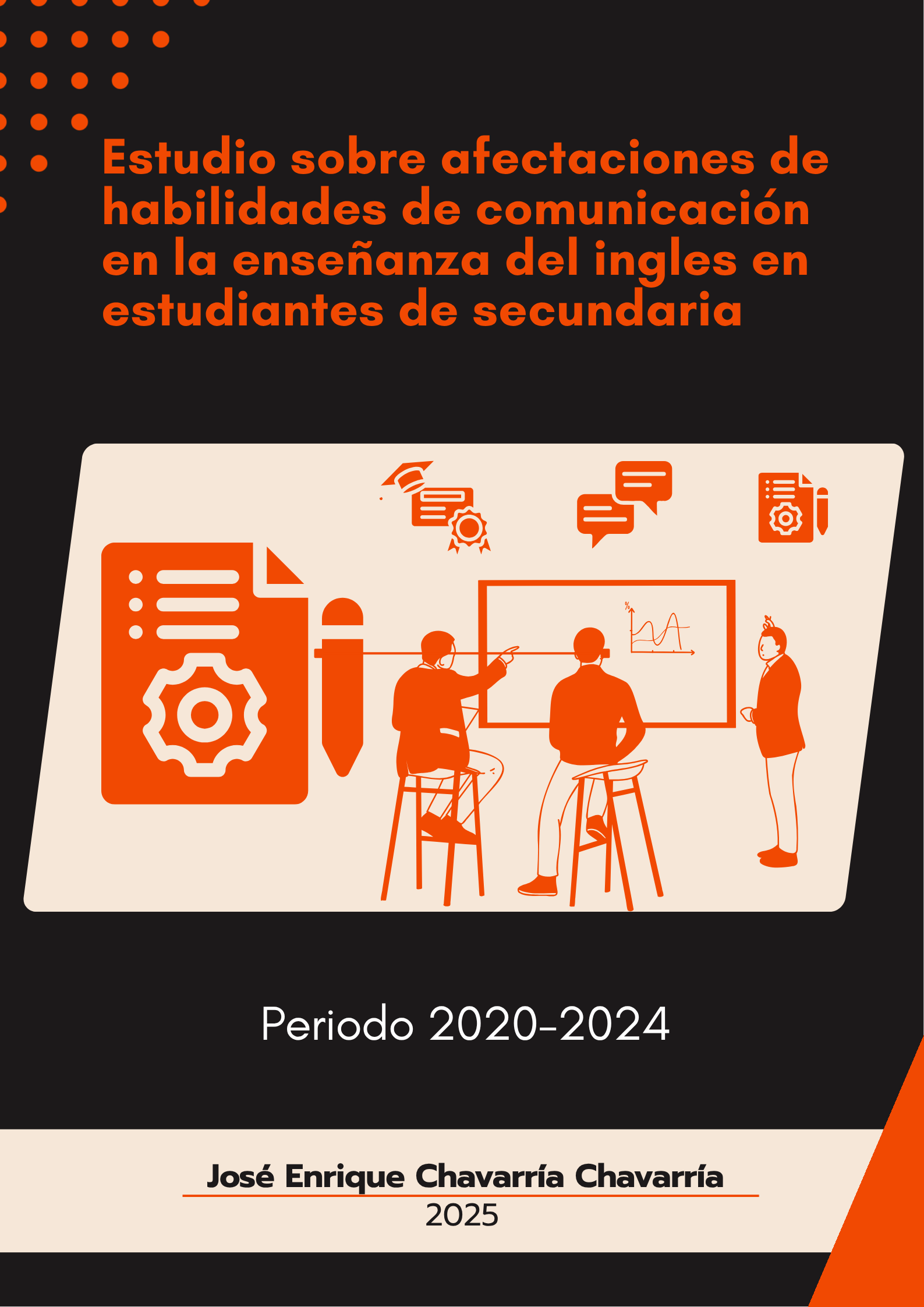¿To what extent have English teachers' communication skills influenced the development of secondary school students' speaking and listening competencies in Costa Rica over 2024-2025?
Keywords:
Habilidades de comunicación, docentes de inglés, competencias orales, auditivas y escritas, educación secundaria, estrategias pedagógicas, retroalimentación, motivación estudiantil, interacción en el aula, capacitación docenteAbstract
This study analyzes the transversal role of communication skills among English teachers at the secondary education level in Costa Rica, as the development of students’ oral, auditory, and written competencies has been diminished. Through continuous education, this research highlights the impact of teacher training alongside students’ commitment to acquiring greater knowledge of the language. The purpose of this article is to establish the extent to which communicative ability is connected to the academic and professional training of teachers, as well as the influence of assertive communication on the institutional structure of high schools. It is also important to consider communication barriers, particularly those related to language, which hinder evaluation processes. Another aspect addressed is students’ performance when applying the language in more practical contexts. The research adopted a mixed-methods approach to gather perceptions that enabled an in-depth analysis of key dimensions, supported by a descriptive methodological design. The results reveal that clarity, empathy, and feedback provided by English teachers are decisive factors in the improvement of students’ oral, written, and auditory performance. Likewise, teachers who implement dynamic and interactive strategies achieve outstanding levels of student motivation and participation. The findings underscore the need to strengthen teachers’ pedagogical training, particularly in communication skills, and to design and implement training programs aimed at improving peer interaction. Finally, the study highlights the relevance of establishing teacher communication as a central axis in the English teaching–learning process in Costa Rican secondary education.
Downloads
References
Brenes, J., & Viales, J. (2019). Supporting the English Listening Comprehension Skill in a Costa Rica’s rural high school: The Use of Teacher-Recorded Listening Exercises Modified with Background Noises. Revista de Lenguas Modernas, Estudios sobre didáctica de lenguas extranjeras, Núm. 30.
CELT. (2024). Challenges of English Language Teaching: The Case of a Public School. Lenguaje, Sociedad y Escuela.
Espinosa, D., González I., & Moreno, J. (2018). Feedback: understanding strategies and impact on EFL learning and teaching contexts. Enletawa Journal, 10(1), 43–65.
Ferreiro, G. (2023). EFL University Students’ Perception of Immediate Oral Corrective Feedback in Two Costa Rican Private Institutions. Revista Tecnológica ESPOL – RTE.
ECALM. (2021). The Effect of Communicative Activities on EFL learners’ Motivation: a case of students in the Amazon Region of Ecuador. Colombian Applied Linguistics Journal.
TLBSS. (2020). The Testing of Listening in Bilingual Secondary Schools of Costa Rica: Bridging Gaps Between Theory and Practice. Universidad de Costa Rica / CLACSO.
WP. (2020). Work in Progress: English Teaching and Teachers in Latin America. Inter-American Dialogue.







